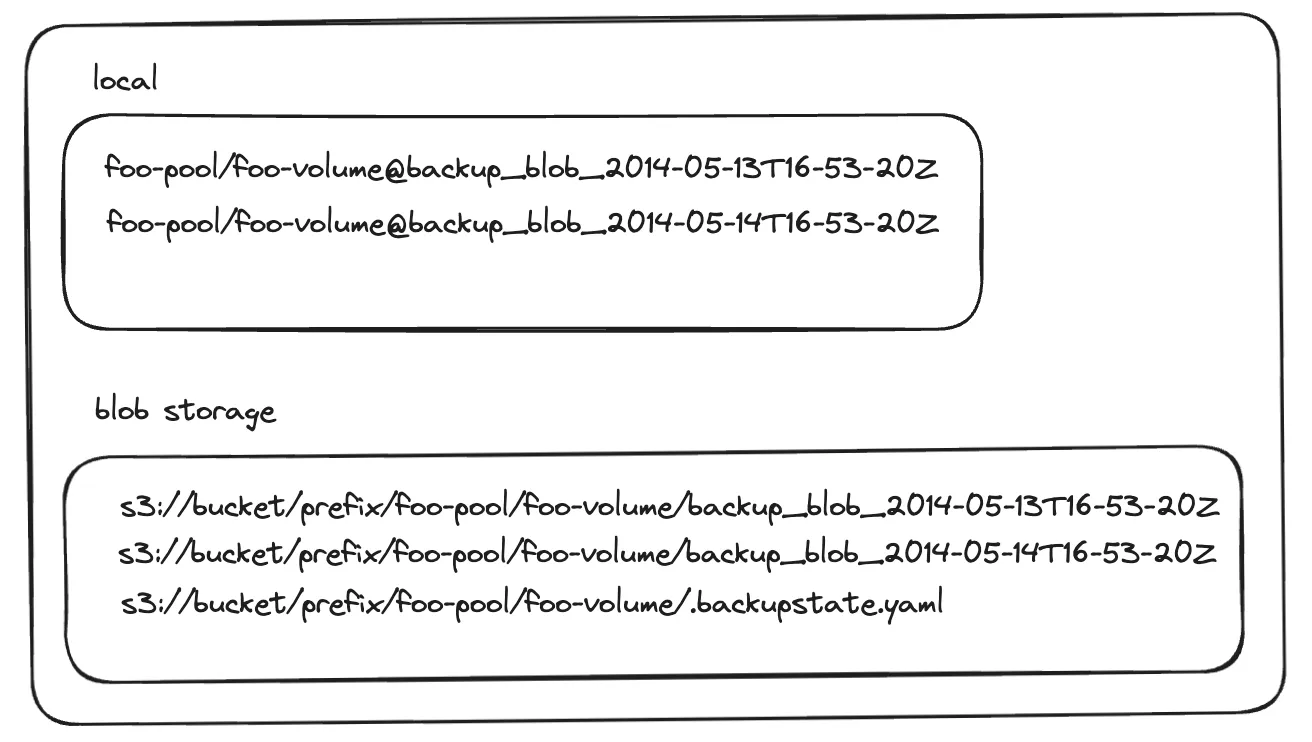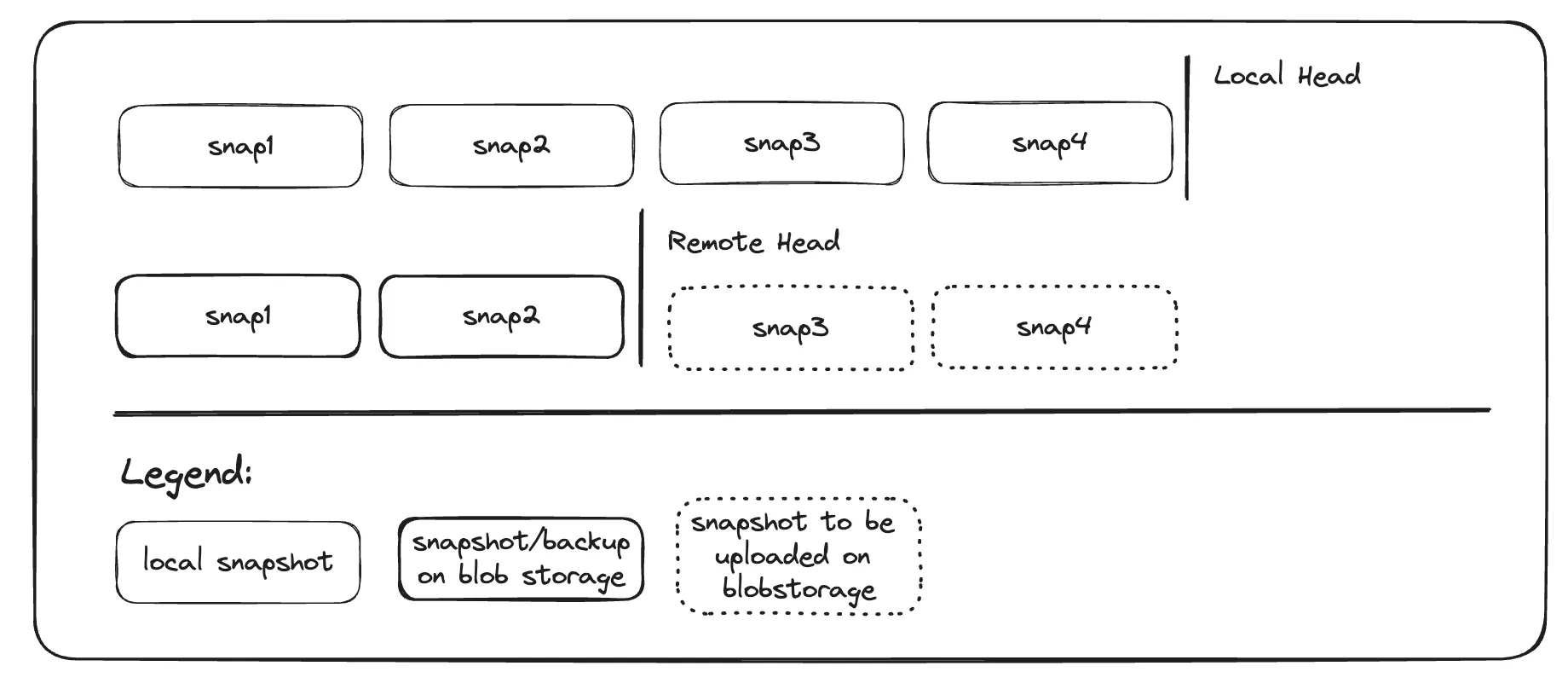Architecture
General
Under the hood zfs-backup-blob CLI is making use of the zfs CLI and the S3 SDK to interact with the ZFS and the blob storage.
Snapshot / Blob folder organisation
Backups on the storage account are organized in folders, the folder structure is determined by the folder structure of ZFS.
As you can see below a ZFS volume named zfs-pool/volume1 is backed up to a blob storage named s3-bucket. Since in the configuration a prefix was specified the folder path is prefixed with the prefix in the bucket.
Snapshot have a static naming scheme: backup_blob_<date_of_creation>.
Additional a statefile .backupstate.yaml is stored alongside the backups on the blob storage. This keeps track state related to the backups.

Snapshot relationships
ZFS Backup Blob offers two types of snapshots. Full and incremental.
Incremental backups only stores the difference between the previous snapshot and the current one. The previous snapshot is determined by the time lexical order of the snapshot names.
Full backups stores the whole volume.

Sync reconciliation
When creating snapshots locally of a volume with zfs backup blob you want them to be synced to the blob storage.
Creating snapshots with the snapshot command marks those snapshots automatically reconciliation the next time the sync command is executed.
Snapshot created by you manually with the zfs snapshot command will not be reconciled / synced to the blob storage. This is by design to not interfere with your manual snapshots / other tools you use.
Below we have locally 4 snapshots and snap4 is the latest and therefor the HEAD.
On the blob storage we have 2 snapshots of which snap2 is and therefor the HEAD.
The sync command will take snap3 and snap4 and upload them to the blob storage since they are the difference of both HEADs.
